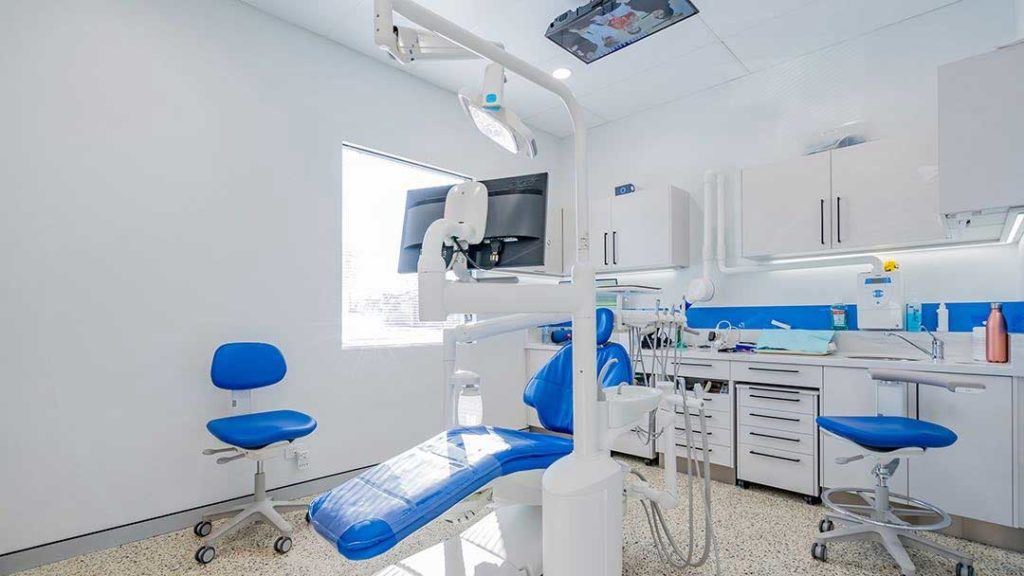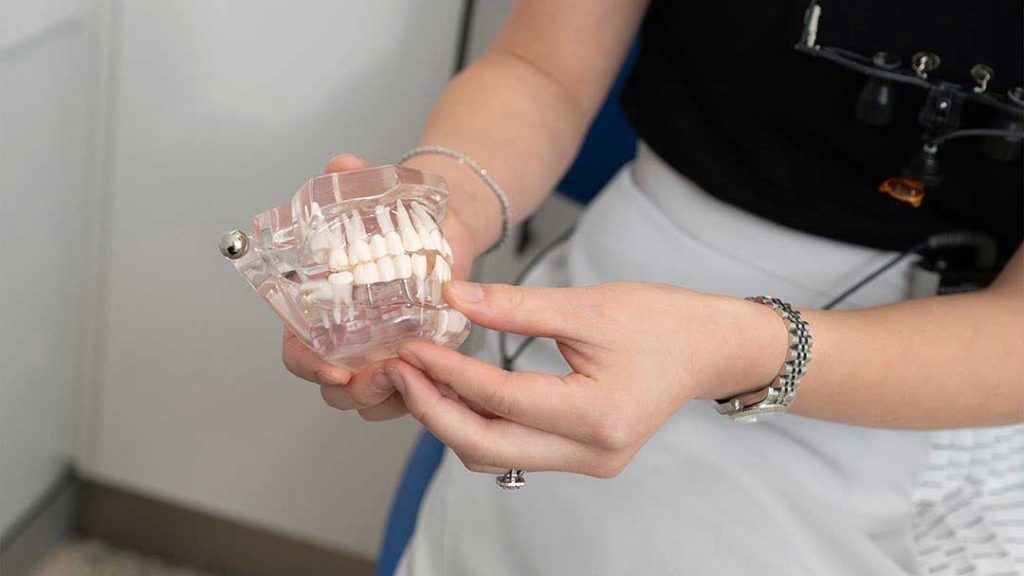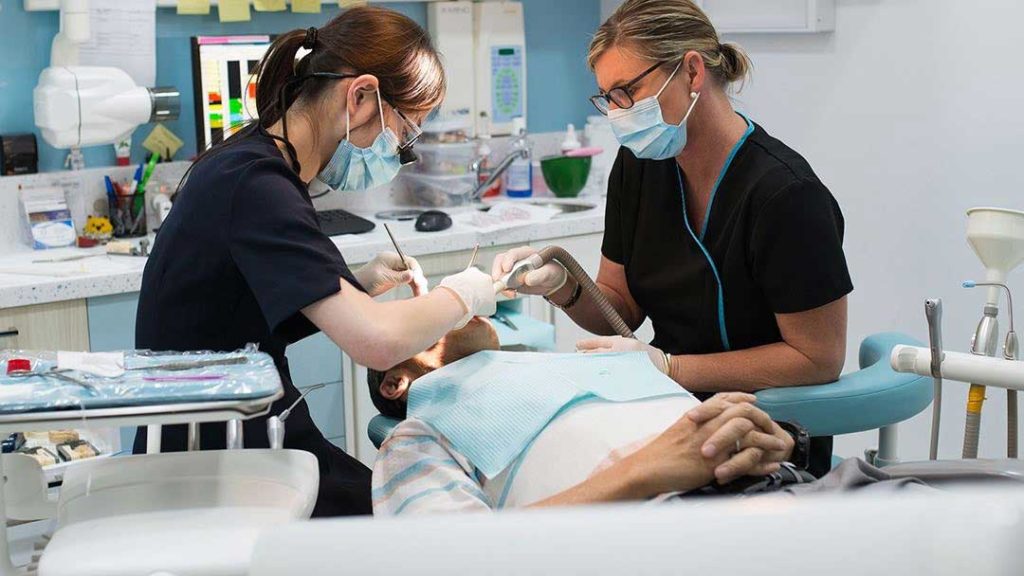
How To Avoid Getting Gingivitis
Gingivitis is an initial stage of gum disease, characterized by inflammation and bleeding of the gums. If neglected, it can develop into periodontitis, bringing about serious complications such as loose teeth and persistent bad breath. Typically, gingivitis is a result of subpar oral hygiene practices that permit plaque—a sticky, bacteria-filled substance—to gather on the teeth and solidify into tartar.
Fortunately, with diligent oral care routines, including regular brushing, flossing, and consistent dentist visits, gingivitis can be effectively kept at bay.
In the following sections, we’ll deepen your understanding of gingivitis, its root causes, and early red flags to stay alert for. We’ll also explore dietary strategies for prevention, common flossing mistakes to sidestep, key conversations to have with your dentist, and the significance of regular dental check-ups. Plus, we’ll guide you on how to schedule your appointment with Odin House Dental Surgery.
What is Gingivitis and What Causes It?
Gingivitis represents a mild stage of gum disease that, if not managed appropriately, can advance to periodontitis. This condition primarily arises from bacterial accumulation in plaque—something that can be effectively curtailed through effective oral hygiene practices such as brushing, regular flossing, and consistent dental check-ups.
Gingivitis has various triggers, but it is mostly attributed to poor oral health. When oral hygiene is inconsistent or inadequate, plaque buildup on the teeth fosters bacterial growth. This triggers inflammation and redness around the gums—key indicators of early-stage gingivitis.
Additional factors that may exacerbate the health condition include hormonal shifts, certain medication usage, smoking, and a genetic predisposition to gum disease.
In order to maintain peak oral health and stave off gingivitis, it’s crucial to commit to thorough daily cleaning practices and to arrange regular professional dental check-ups and cleanings.
Identifying Early Warning Signs of Gingivitis
Recognizing early signs of gingivitis, a mild form of gum disease, can dramatically slow its progression and avert further oral health issues.
The indicators of gingivitis might be understated, yet it’s vital to spot them early for timely intervention. Signs of gingivitis encompass:
- Red or swollen gums
- Persistent bad breath
- Gums that are tender and bleed easily during brushing or flossing
- Receding gum lines
These symptoms might appear harmless initially but can evolve into severe conditions such as an infection if overlooked.
Hence, the practice of good oral hygiene habits like regular brushing and flossing is paramount in preventing gingivitis. Also, routine dental examinations can assist in identifying early-stage gum disease before it transforms into a severe condition such as periodontitis.
What Foods Can Boost Your Defense Against Gum Diseases?
Integrating certain foods into your diet can offer significant benefits in preventing gum diseases, as they bolster oral health and counteract bacterial proliferation. A nutrient-dense diet, loaded with leafy greens like spinach and kale, delivers vital vitamins and minerals that enhance dental well-being. These greens are replete with vitamin C, an important nutrient known to curb inflammation and fend off periodontal diseases.
On the flip side, foods high in sugar can catalyse bacterial growth, leading to plaque accumulation and subsequent gum diseases like gingivitis. Therefore, poor nutrition indirectly amplifies the chances of falling prey to such conditions.
As such, adhering to a balanced diet is a powerful strategy for maintaining excellent oral health, while minimising the consumption of sugary treats and processed foods.
Common Mistakes to Avoid When Flossing
Understanding the art of effective flossing is a key component of sustaining oral health. However, individuals often make common errors when carrying out this essential dental hygiene practice.
- Not flossing at all: The most prevalent mistake is simply neglecting to floss. This can lead to plaque accumulation between teeth, which can further cause a multitude of oral health problems.
- Missing certain areas: Failing to reach all interdental spaces results in certain areas being overlooked—areas that could be susceptible to gum disease.
- Using excessive force: Applying too much pressure while flossing can harm the soft tissues in the mouth, leading to other dental issues.
- Reusing the same floss segment: This can inadvertently spread bacteria across different teeth, increasing the risk of dental decay.
Enhancing awareness about these common mistakes and emphasizing correct toothbrush and flossing techniques can significantly improve oral hygiene practices, contributing to better overall dental health.
Things to Discuss with Your Dentist on Your Next Visit
Maintaining open and effective communication during your dental visits is vital. Therefore, there are certain subjects that can be beneficial to discuss with your dentist. These may include changes in your oral health, the medications you’re taking, any anxieties about dental procedures, and questions about preventative measures.
Open dialogues about oral health between you and your dentist are critical for receiving optimal care. For example, promptly addressing questions about gingivitis can enable early detection and treatment.
Additionally, it’s a good idea to seek advice on the recommended frequency of professional dental cleanings to prevent plaque build-up. Neglected plaque can evolve into gum diseases like periodontitis.
Lastly, don’t hesitate to express any fears or concerns you might have. Your dentist is there to help and make your experience as comfortable as possible.
Why are Regular Dental Check-ups Essential?
Moving away from specific conversation topics during a dental visit, it’s important to highlight the value of regular dental check-ups. These sessions with your oral health professional should not be viewed as optional, but rather as an essential part of safeguarding your oral health.
Regular dental check-ups grant your dentist the chance to meticulously examine your teeth and gums for any indications of potential issues, such as gingivitis. If this early-stage gum disease goes unnoticed and untreated, it can advance into periodontitis, resulting in lasting damage.
By committing to schedule and attend regular dental check-ups, you significantly improve your chances of either preventing gingivitis or identifying it at its onset. This allows for immediate intervention and treatment. Therefore, such proactive steps play a substantial role in the preservation of your overall oral health.
Schedule Your Appointment with Odin Dental Today
Understanding the significance of maintaining excellent oral health, we urge you to schedule a comprehensive dental check-up with Odin House Dental Surgery. We’re just a phone call away at (08) 9468 7182.
Our professional team can go a step further with regular cleanings, identifying potential issues early, and providing appropriate treatments accordingly. Plus, we offer personalized advice to elevate your daily oral hygiene routine, tailor-made to fit your unique needs.
Don’t wait until you face a dental problem—make your oral health a priority today. Schedule your appointment with Odin House Dental Surgery and take the first, decisive step towards enhanced oral health practices. Your journey towards a healthier smile starts here!
Frequently Asked Questions
What is periodontitis and how is it different from gingivitis?
Periodontitis is a severe gum disease resulting from bacterial activity under the gums that erodes the jaw bone. It differs from gingivitis, which is inflammation of the gums and is considered a milder form of periodontal disease.
What services does Odin House Dental Surgery offer for gum diseases?
Odin House Dental Surgery provides periodontal treatment for gum diseases, including examination, cleaning, and plaque and calculus removal. Other services include general dental check-ups, hygiene visits, and emergency dental care to help maintain oral health.
How can dental crowns and bridges help in gum disease prevention?
Dental crowns and bridges serve to restore damaged or missing teeth, preventing the accumulation of plaque and bacteria in hard-to-reach areas. This helps in reducing the risks of gum disease such as periodontitis.
Are there any special offers or consultations provided by Odin House Dental Surgery for first-time patients?
Odin House Dental Surgery offers a free Smile Chat® or in-office consultation for all patients, potentially benefitting first-time visitors. However, as specifics may vary, it is recommended to contact the clinic directly for details.
Can cosmetic dental treatments contribute to the prevention of gum diseases?
Cosmetic dental treatments primarily aim to enhance the aesthetics of one’s smile. While they may indirectly support oral hygiene practices, their direct role in gum disease prevention is not definitively established through scientific research.


